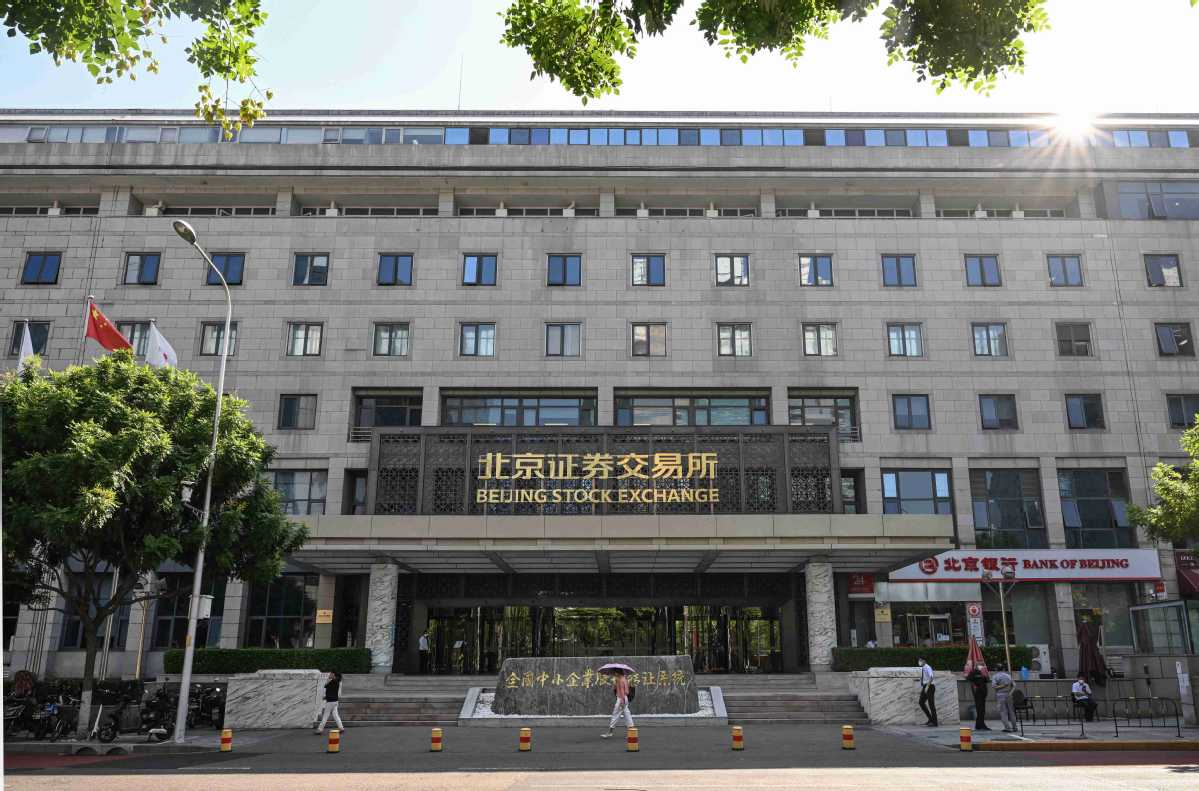Nurturing tech SMEs with timely funding
By SHI JING in Shanghai | China Daily | Updated: 2022-12-05 09:26

1-year-old BSE, China's youngest bourse, finds firm foothold to grow against odds
As of Dec 1, the number of listed companies on the Beijing Stock Exchange, China's newest bourse, reached 131, up 62 percent from 81 when trading began on Nov 15 last year.
Launched to nurture China's technologically advanced small and medium-sized enterprises, the BSE has made steady yet impressive progress in its turbulent first year of operations. It is an achievement that has come against a variety of odds, chief among them being COVID-19 headwinds and the wayward trend of key indices on other bourses in China, industry experts said.
Market mavens are pleased the BSE has already found a firm foothold, and are confident more capital will flow into the bourse, enhancing market liquidity and strengthening the exchange's trading mechanism.
What is more, many BSE-listed companies have used IPO proceeds to make breakthroughs in key technologies, break monopoly of foreign companies in certain sectors and come up with China-made substitutes.
So, confidence in the BSE's future is rising, with the latest shot in the arm coming from the BSE 50 index, which was officially launched on Nov 21.
BSE data showed 50 constituent companies of the index account for 71 percent of the total market capitalization. These companies are from high-end equipment, new energy, technology software and hardware, new materials and biopharmaceutical industries.
Data from market tracker Wind Info showed that over 80 percent of the BSE-listed companies are from strategically emerging industries and advanced manufacturing industries like information technology and high-end equipment.
Nearly 20 of the BSE-listed companies are "little giants" — SMEs specializing in niche industries with cutting-edge technologies and great growth potential — recognized by the Ministry of Industry and Information Technology.
"The launch of the BSE 50 index provides a benchmark for investors. More products can be developed by referring to this index," said Yan Yang, a portfolio manager at China Universal Asset Management.
Right after the launch of the index, at least six prominent Chinese asset managers, including China Asset Management, China Southern Asset Management and E Fund Management, announced the launch of products based on the BSE 50 index.
That will help investors to broad-base their portfolios. If the success of the STAR Market 50 index of the Shanghai Stock Exchange is any indication, additional capital will likely flow into the BSE as more products that will track the BSE 50 index will be developed soon, said Li Zhan, chief economist with China Merchants Fund.
On Nov 11, four days before the BSE's first anniversary, the bourse announced margin trading rules. Experts from Guotai Junan Securities said it is another major step forward for the BSE as the new rules will establish its trading mechanism on a firmer footing. This would mean that leveraging will provide investors a range of trading strategies and risk management methods.
In the first three quarters of the year, total sales revenue of the BSE-listed companies surged 33.25 percent year-on-year to 73.2 billion yuan ($10.4 billion), with total net profit surging 19 percent to 6.9 billion yuan.
Data from Wind Info showed that in the January-September period, the BSE-listed companies allocated more than 4 percent of their sales revenue to research and development, with the average R&D expenditure soaring by 33.1 percent year-on-year.
























